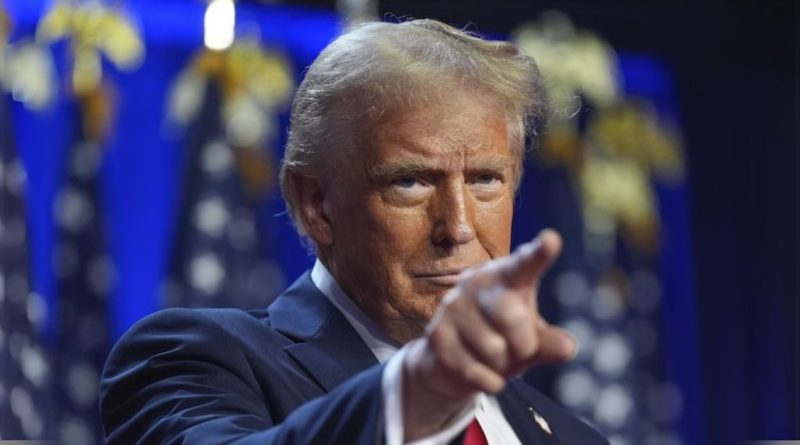Trump’s Bold Claims on Canadian Territories, Panama Canal, and Greenland: A New Chapter in U.S. Foreign Policy?
In a surprising declaration, President-elect Donald Trump has expressed intentions to assert U.S. territorial claims over Canada, Greenland, and the Panama Canal. This move marks the first time in over 75 years that the United States may pursue the acquisition of new territories, raising eyebrows about the future of international relations and diplomacy.
Greenland: A Matter of National Security
Trump’s interest in Greenland is framed around U.S. national security concerns, citing increased Chinese and Russian activities in the region. His assertions were underscored during a recent visit to Greenland by his son, Donald Trump Jr., and newly appointed White House personnel chief, Sergio Gor, intended to showcase U.S. support among locals.
In challenging the sovereignty of Greenland—currently under Danish control—Trump has suggested that Denmark’s legal rights to the territory should be reconsidered if they do not comply with U.S. security interests. This aggressive stance reflects a broader strategy to solidify U.S. dominance in the Arctic region.
Claims on the Panama Canal
Turning attention to the Panama Canal, Trump criticized former President Jimmy Carter’s decision to transfer control of the canal back to Panama in 1999, asserting that this has allowed Chinese influence to flourish. Trump described the current situation as a “disgrace” and emphasized the importance of reclaiming leverage over this vital shipping route. His remarks have been met with resistance from Panama’s government, which has rejected claims of foreign control and firmly asserted its sovereignty over the canal.
Canada: The 51st State?
Trump’s claims on Canada were articulated during a press conference where he argued that the U.S. shoulders an unfair economic burden in protecting its northern neighbor. He floated the suggestion that Canada should become the United States 51st state due to trade deficits and military reliance. The Prime Minister of Canada, Justin Trudeau, along with other political leaders, has strongly condemned Trump’s remarks, emphasizing Canada’s independence and the mutual benefits of their partnership.
Implications on International Relations
Trump’s assertions not only challenge established international norms but also threaten to strain relations with key allies, including Canada, Denmark, and Panama. These claims could potentially jeopardize cooperative efforts within NATO and affect the geopolitical landscape, particularly in light of NATO’s commitment to mutual defense.
Historically, the U.S. has not sought new territories since the absorption of the Mariana, Caroline, and Marshall Islands in 1947, and Trump’s remarks may indicate a fundamental shift in the American foreign policy trajectory focused on territorial expansion.
A Shift Towards Western Hemisphere Dominance
The emphasis on the Western Hemisphere aligns with Trump’s broader agenda, which prioritizes immigration policies and regional security. Appointments such as Marco Rubio as Secretary of State indicate that defending U.S. interests within the Americas will remain a top priority for the administration.
As analysts speculate on Trump’s motivations—whether they are driven by genuine territorial ambition or strategies for negotiating better economic deals—the implications of these claims could reshape the rules of global diplomacy, prompting reactions that lead to unforeseen consequences.
Conclusion
As President-elect Trump prepares to take office, the global community watches closely to see how these claims will play out and affect international relations. Whether viewed as a negotiating tactic or a serious policy proposal, Trump’s assertive stance on Canada, the Panama Canal, and Greenland may herald a new era in U.S. diplomacy.

